Life
Sign up for our newsletter
We summarize the week's scientific breakthroughs every Thursday.
-
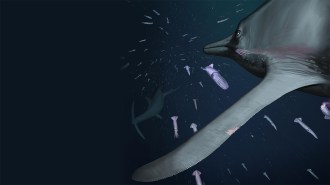 Paleontology
PaleontologyHow an ancient marine predator snuck up on its prey
Serrations at the edges of a fossilized flipper of the ancient marine reptile Temnodontosaurus suggests it may have been able to swim silently.
-
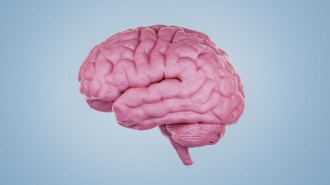 Health & Medicine
Health & MedicineProtein signatures may one day tell brain diseases apart before symptoms
Blood tests could pave the way for distinguishing between Alzheimer’s, Parkinson’s and some dementias, aiding early treatment for brain diseases.
-
 Paleontology
PaleontologyHow fast did dinosaurs really go? Birds walking in mud provide new clues
Tracks of dinosaur footprints can hint at how fast the extinct animals moved. Here’s how guinea fowl can help fact-check those assumptions.
-
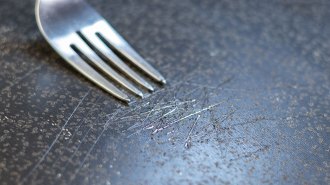 Chemistry
ChemistryGut microbes may flush ‘forever chemicals’ from the body
Experiments in mice show that some gut bacteria can absorb toxic PFAS chemicals, allowing animals to expel them through feces.
-
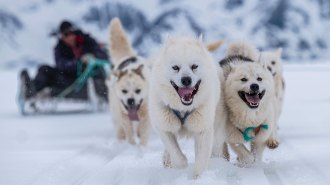 Animals
AnimalsGreenland sled dog DNA is a window into the Arctic’s archaeological past
A genomic analysis of Greenland’s Qimmeq dogs suggest they and their human partners arrived on the island centuries earlier than previously thought.
By Jake Buehler -
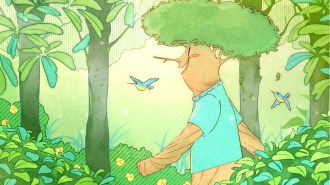 Climate
ClimateTrees can’t get up and walk away, but forests can
In fantasy worlds, trees like the Lord of the Rings’ Ents are agile and mobile. In the real world, they’re slow.
-
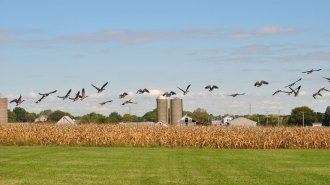 Animals
AnimalsAs bird flu evolves, keeping it out of farm flocks is getting harder
New versions of the H5N1 virus are increasingly adept at spreading. Suggestions to either let it rip in poultry or vaccinate the birds could backfire.
-
 Oceans
OceansDeep-sea mining could start soon — before we understand its risks
The U.S. push to mine international waters for metals defies global efforts to control and protect these fragile ecosystems.
-
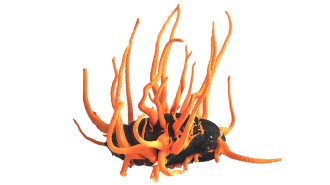 Life
LifeWhy these zombie caterpillars can’t stop eating
Sneaky chemistry by a real-life “Last of Us” Cordyceps fungus mind controls its zombie insect victims by convincing them they’re starving.
By Susan Milius -
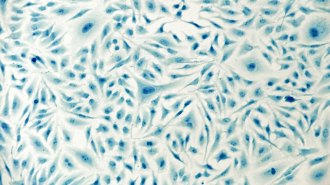 Physics
PhysicsScientists 3-D printed a tiny elephant inside a cell
The first structures ever 3-D printed inside living cells point to applications for biology research.
-
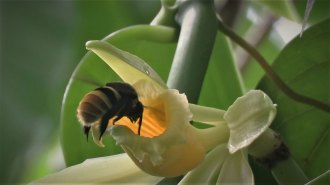 Climate
ClimateClimate change could separate vanilla plants and their pollinators
The vanilla species grown for its flavoring is finicky. Genes from its wild relatives could help make it hardier — but not if those cousins go extinct.
-
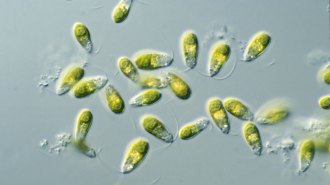 Life
LifeA 3-D printed, plastic beaker could help algae grow on Mars
Algae grown under Mars-like conditions could make bioplastic building materials for structures to harbor life in space.